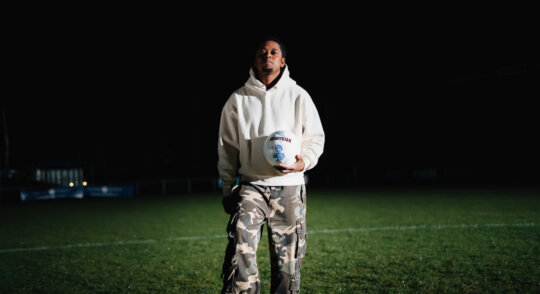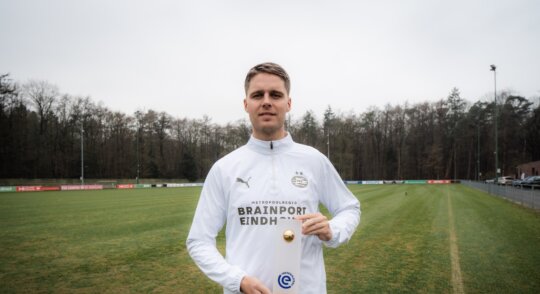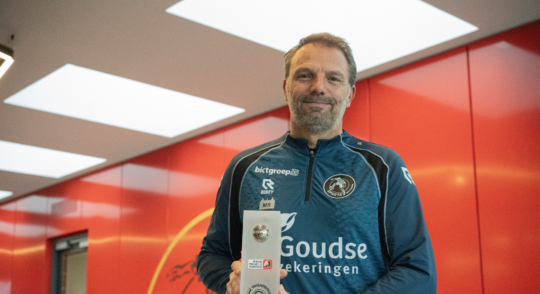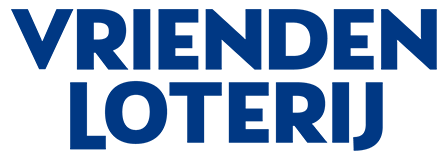Zeist, 7 October 2024 - More than 160,000 members of the Dutch public have taken part in 306 social programmes organised by the 34 professional football clubs, focusing on health, connection and sustainability. In the 2023/24 season, an even greater social impact was achieved via a €9 million investment in a range of different programmes. Players contributed a total of 2,801 hours to social activities. Professional football has 9.7 million fans in the Netherlands and recorded its highest stadium occupancy in years last season. This shows the huge reach professional football has. It’s a sport that fans really enjoy and contributes to improved connections and the well-being of society as well. This is confirmed by the social impact report of both the Eredivisie and the Keuken Kampioen Divisie for the 2023/24 season, prepared in collaboration with Utrecht University and presented at the 'More than Football' conference this morning.
"The professional football clubs are crucial for their cities and regions, not just for the football itself but also because of the social role these clubs play." said Marc Boele, director of CED (Coöperatie Eerste Divisie).
Jan de Jong, director of Eredivisie CV adds: "We bring people together, provide them with entertainment and distraction, inspire them to live healthier lives and, amongst other things, help young people with poor prospects on the labour market find their place in society. The social impact report scientifically underlines just how powerful football is as a tool for positive change. This is why we would like to - and should - be the discussion partner for the authorities, educational institutions and civil society organisations. We should be working together to find solutions to the major challenges that society is facing today. Football is the most effective way of putting complex issues like inclusivity, sustainability and health on the agenda, tackling them and making a difference at a local and national level."
Football helps young people find work or their way into education and training
The clubs also do their bit to contribute to social reintegration projects for vulnerable young people. Via the Community Champions programme, 1,500 young people have discovered their talents and contributed to their local communities. The programme’s results are impressive: 17% of participants have found work, 21% have returned to education or training, 12% have found internships and 15% have started to do volunteer work. Also, 90% of participants said that they had met young people from other cultures, which contributes to social inclusion and a reduction in inequality.

Health projects very successful
Sport and exercise are an essential part of an active lifestyle and promote both physical and mental health. This makes them an important pillar for the Eredivisie and the Keuken Kampioen Divisie. The clubs are committed to a healthy community and are achieving remarkable results through their health programmes. For example, FC Twente FIT is helping its supporters live a healthier lifestyle. After taking part in this project, which is based on the EuroFIT method, participants increased the number of steps they were doing on average and started to eat healthier. Also, sc Heereveen’s OldStars programme is giving older people the opportunity to stay active via Walking Football, a modified form of football that doesn’t involve any running or physical contact. This programme enables over-60s to play sport and maintain social contacts within the club on a weekly basis. Research among 20 participants in the project showed that they did more than an hour of extra exercise a week during the 2023/24 season.
Football clubs take serious steps towards sustainability
Professional football is also taking important steps towards sustainability. In the 2023/24 season, 15 clubs collectively implemented 46 sustainability measures. For example, Sparta Rotterdam announced a partnership with energy company Essent to make the 108-year-old Het Kasteel stadium completely gas-free with more than 1,200 solar panels and a thermal storage system. "This partnership will give us an all-electric stadium, which can serve as an example for other clubs," said Manfred Laros, the director of Sparta. Ajax is investing in sustainability too; work is underway to make the De Toekomst training complex completely energy-neutral by 2030.
Football creates connections
The social programmes show that football plays a key role in connecting communities. For example, the Feyenoord Street League gets children on the move in street football but also organises community projects that help improve cohesion in society. For example, children do shopping for the elderly, which benefits the community and strengthens the children’s social skills.
The public campaigns have made an impact as well. For instance, Ajax reached 250 million people worldwide with its award-winning Silence Social Hate video, which targets online hate and discrimination, and PSV gained 4,462 new blood donors with its Blood Relatives campaign.

Clubs working towards CSRD-proof reporting
With the support of Utrecht University, close monitoring of the social impact of the Eredivisie and the Keuken Kampioen Divisie will be maintained in the years ahead. The report will continue to evolve and the aim is to make it CSRD-proof. This month, the three-year partnership between the Eredivisie CV and Utrecht University will be extended until 2030. This means that the partnership between the Eredivisie, the Keuken Kampioen Divisie and Utrecht University will remain in place in the years ahead. This will make it possible to continue to record and report on the social impact in the future.
Click here for the reports (in Dutch):
Read more









